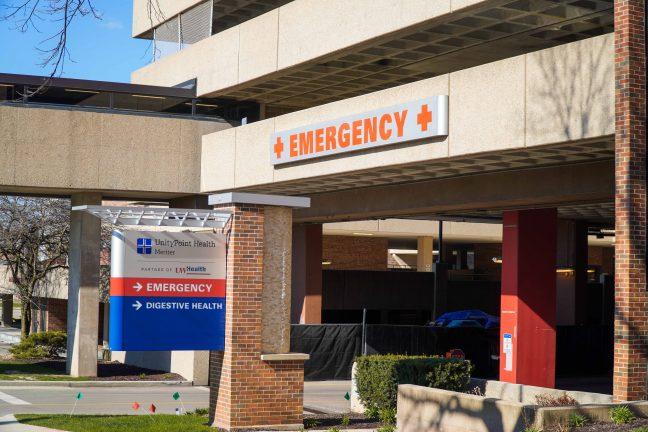In the United States, health policy is an incredibly complex and divisive issue. We do not have a fully government-funded or centralized health care system. Without this subsidization, costs for care can vary greatly not only across the country but from hospital to hospital within the same city, according to The Cap Times.
This variance in price would not be that big of a problem if consumers could see the cost of each service before they chose to proceed. But in the U.S., it’s difficult for consumers to find accurate pricing until they are hit with the bill, which can sometimes be financially devastating. The inability to see or compare health care costs is due to a multitude of reasons.
One reason for low transparency is because the U.S. has a needlessly complex insurance system. Another problem is hospitals’ noncompliance with price-transparency regulations. There is no silver bullet solution to the health care system in the U.S., but there are steps that can be taken.
US Forest Service should cancel irresponsible plan to clear 12,000 acres of Wisconsin forests
Increased regulation of price transparency would be one step in a positive direction. There have already been some attempts to increase price transparency. Under the former President Donald Trump’s administration, federal policies required hospitals and insurance companies to follow regulations regarding increased publication of health care costs, according to The Cap Times.
A National Institute of Health study on this policy estimated that if working effectively, it could reduce health costs for consumers in the U.S. by as much as $80.7 billion. The region most impacted by this bill is the Midwest with a $20 billion estimated reduction in spending. This huge amount would substantially decrease the burden of health costs on Americans.
The policy, while well-intentioned, has proven to be ineffective at enforcing compliance. Estimated compliance rates range anywhere from 25% to 70%. according to The Capital Times. Low compliance rates reduce the benefits of this policy and illustrate how little price transparency there is in the health care industry.
Even when hospitals do comply, these hospitals also offer large price ranges. Data from more than 103,000 hospitals across the country showed the same procedure could have rates as low as $0 and rates as high as more than $2 million, according to Health System Tracker.
Withholding pay increase for Universities of Wisconsin employees too far for Republicans
For just hospitals in Chicago, the negotiated rate of the procedure ranged anywhere from $1 to more than $6,000. This is misleading and does not provide the consumer with any useful information about what kinds of financial burden they may have to face.
Another example of incomplete transparency is St. Mary’s Hospital and Meriter Hospital in Madison. They released their pricing information as a JSON file which is difficult to interpret without coding skills, according to The Cap Times.
There is clearly still a lot of work to be done regarding price transparency in health care.
One attempt to help increase price transparency in Wisconsin is a bill that is currently being debated in the state legislature. This bill would increase regulation on price transparency in the health industry. Specifically, it would make it so hospitals and healthcare providers would be required to post two lists of pricing information online — one that is “machine-readable,” and one that is “consumer-friendly,” according to the bill’s text.
Lenient state labor regulations threaten vulnerable employees
The lists would allow consumers to have a better sense of financial burdens, allowing them to better select a service in their price range. Non-compliance with the law would lead to fines for hospitals, as well as being listed on public records detailing their non-compliance, according to the bill’s text.
This change in our system would be very beneficial. Patients could find hospitals offer the best prices for what the bill calls “shoppable services,” those that can be scheduled ahead of time.
The passage of this bill would help reinforce the intentions of the federal policy on the state level, increasing transparency and accountability for health care providers in our community. It would save consumers across the country upwards of $80 billion — meaning more families could afford the care they need without the threat of financial ruin.
Charles Zumbrunnen ([email protected]) is a sophomore studying agricultural and applied economics.





















